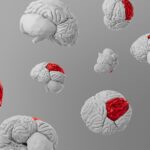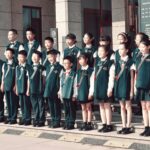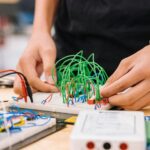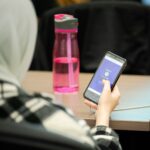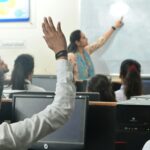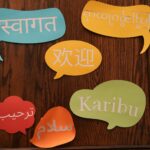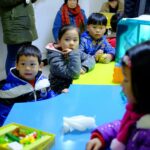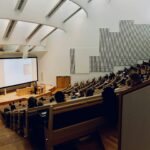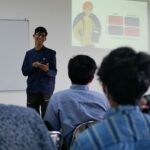Neuromyths are commonly held misbeliefs about the brain and its functions. As Christopher Berland mentions in his article, once individuals are exposed to an idea, it is challenging for them to distinguish between fact and fiction. A study conducted by... View Article
Categories for Uncategorized
China is known for having one of the most successful math programs worldwide. Its students score at the top on international math tests. In an effort to bring up domestic test scores, some countries are attempting to emulate China’s teaching... View Article
In 2011, IBM launched P-TECH, the Pathways for Technology Early College High School, in a low-income neighbourhood in Brooklyn, New York. Unlike many specialized program schools, any student that lives within the area who is interested in math and STEM... View Article
Google’s Chromebooks have been the industry leader for educational-used notebooks for years. In an article by Julia Love, she explains why this may change with the introduction of Microsoft’s new suite of educational products. The suite includes a new version... View Article
For night owls, a poor night’s sleep does not simply leave you feeling tired the next day. It can cause major damage to your productivity, concentration, and your well being. Sleeplessness has been found to impair memory and learning, harm... View Article
Do kids learn better at a desk or while moving around? This debate led to the development and integration of open classrooms. However, after a few years, classroom design has largely reverted back to its traditional form. Steve Drummond investigates... View Article
It is undeniable. Cell phones are becoming fixtures in classrooms and educators have yet to reach an agreement on how best to cope with them. Most schools have chosen to ban the devices outright. This is due to the belief... View Article
Researchers at Princeton University explored the relationship between attention and learning during decision making in a study using eye tracking and functional magnetic resonance imaging (fMRI). The findings of Leong and colleagues could contribute to the world of education and... View Article
Photo by zhendong wang on Unsplash. The world is full of roughly 6,500 languages, but most Americans are only taught one or two – why is that? We know that learning more than one language lowers the likelihood of developing... View Article
Dementia risk is declining in America and better education may be a factor
November 21, 2016 11:00 amA study in JAMA Internal Medicine found that the rate at which older Americans are getting dementia is declining. Researchers say that education may be the cause of this improvement. Ina Jaffe from NPR reports on this study in her... View Article
Alberta high school students performed well on the 2015-2016 diploma exams and PATs (Provincial Achievement Tests). However, their scores were not outstanding for Grade 6 math. Slav Kornik and Julia Wong explore this outcome in their article. Breakdown of the... View Article
John Guttag and a team of researchers from MIT and Massachusetts General Hospital’s Institute of Health Professions have developed an automated computer system that helps in diagnosing speech and language disorders in children. If diagnosed at a young enough age... View Article
Creating a flawless system of education is not a reasonable goal. However, as Cory Turner reports, the National Conference of State Legislature’s has been looking into how the American education system might benefit from the practices of several of the... View Article
Anthony Kuhn reports on how some schools in China are taking a more creative approach to teaching and learning. Kuhn reports on students at Cold Water Middle School in Southwest China who participate in a combined chemistry and math class.... View Article
Photo by signet 976 on Unsplash. The Toronto Star reports on Mitzie Hunter, Ontario’s new Education Minister, who states that the needs of special education and at-risk students are a top priority in Ontario’s education system. Hunter states that achievement... View Article
Almost a third of Canadian children are sleep-deprived. For many children, this may relate to the excessive time they spend staring at screens. Cassandra Szklarski from the Canadian Press explores this topic in her article. The ParticipAction Report Card on... View Article
While universities are symbols of success, achievement, and intellectual stimulation, it appears that many universities have yet to enter the world of digital, computer-based learning. The Toronto Star‘s Don Tapscott explains how many universities are reluctant to use innovative, computer-based... View Article
NPR Education discusses Nobel Laureate Carl Wieman’s recommendation that universities and colleges need to revise the ways they teach students. Relying on lectures is simply not reliable, nor is it a pathway for student understanding and success. Wieman states that... View Article
Photo by Bermix Studio on Unsplash. Following the unprecedented growth of technology into all levels of the education system, it is important to take a step back to review and evaluate the changes that have occurred throughout this time. Sanjay... View Article
In a bilingual Canada, many view a second language as an essential component of good education. Hence, many parents rush to enroll their children in French programs. However, concerns arise when the overwhelming popularity of French immersion programs phase out... View Article
